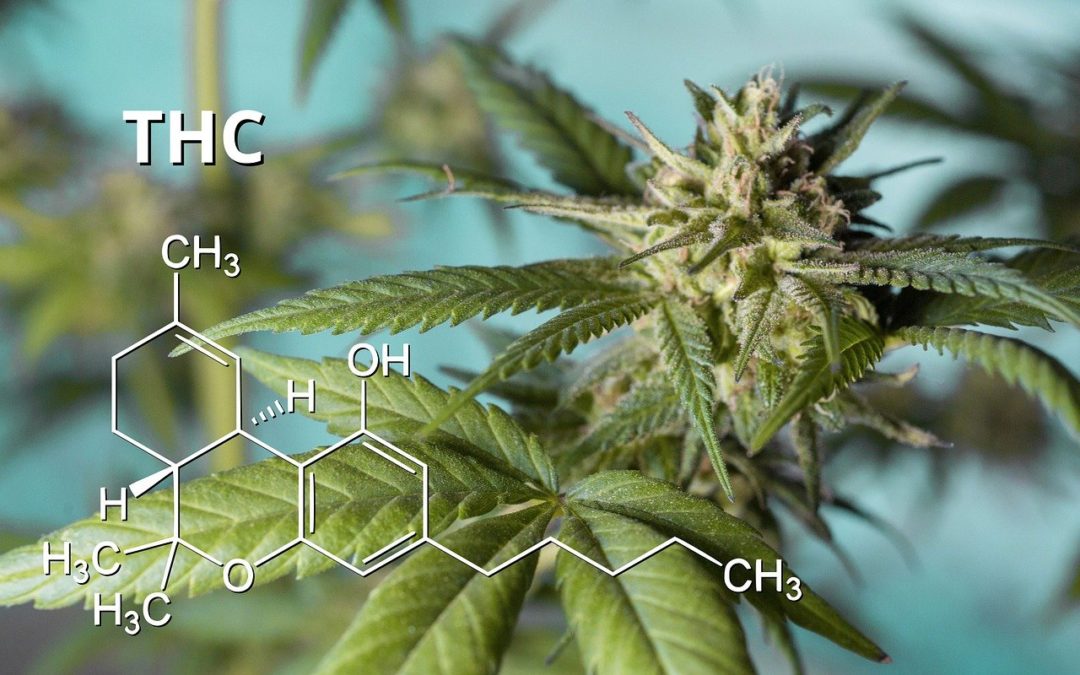You’ve heard me talk a lot about how cannabis works differently depending on how we take it, and how we have to use cannabis the right way for the illness (not so much user preference). We’ve never talked about why this is the case, and I’m sure you’re wondering. Let’s go!
There are a couple of key things to understand. First, what are the chemicals in cannabis? There are many, including THC and CBD that you’ve heard of. There are hundreds more that we know of but have less idea what they might be doing. There is this theory, called the Entourage Effect, that it’s the totality of the chemicals in cannabis that leads to the expected results. This is to explain why cannabis has a different effect than pure THC. However, this is just a theory and has not actually been proven.
THC comes in many different types. Perhaps you’ve heard it called delta-9 THC, which is a more accurate description of the molecule. The “delta-9” part describes where there is a double-bond in the chemical structure. That double-bond can be in other places, like delta-8 or delta-10 that you may have heard of, and that influences what those versions of THC do (and how much we know about them).
Delta-9 THC is the version that we normally get from cannabis. There are often small amounts of delta-8, but so little that we really know almost nothing about delta-8 by itself. You may be hearing a lot about delta-8 lately because it can be synthesized from hemp, and is presently sort-of legal to sell. As an aside, not only do we know very little about the safety and utility of delta-8, but the process of making delta-8 from hemp is very dangerous and can lead to products with all sorts of dangerous byproducts that aren’t easily found on lab testing. I published a scientific article about this here.
The second point is to understand that some medications are taken as one chemical, but are converted in the body into a different chemical and it is the second chemical that is actually the medicine. This is called a pro-drug.
When we use cannabis by inhalation, the delta-9 THC is the drug. However, in the case of edibles, delta-9 THC is actually a pro-drug. It is converted by the liver into another chemical, called 11-hydroxy-THC, which then acts as the medicine. Since 11-hydroxy-THC is a different chemical, it has different behavior as a medicine. It is this difference that makes taking cannabis orally different from inhalation and better for certain problems.
In particular, the inhaled delta-9 THC is rapidly absorbed and works quickly (typically within 10-15 minutes), but for a relatively short period of time (usually wears off in 3-4 hours). This makes inhalation a good way to approach problems that are either acute in onset, like a Migraine headache, or episodic and unpredictable, like nausea.
By contrast, due to the time it takes to absorb cannabis in the gut and the time it takes to convert it in the liver into that 11-hydroxy-THC, orally ingested cannabis takes longer to work (typically about an hour) but because it’s now 11-hydroxy-THC, it works longer than delta-9 THC (usually lasting 8-12 hours). This makes oral ingestion a better approach for chronic issues like pain management of arthritis or similar. In fact, we know that for these chronic conditions, inhalation can actually make pain worse due to rapid cycling between effect and wearing-off.
In the end, all this chemistry talk really boils down to this: the route of administration of cannabis plays a crucial role in how it works as a medicine and whether it will work well and safely for a particular illness. We have to choose the right approach for the problem if we want best benefit and least risk.
Consult with a Qualified Boston Medical Marijuana Expert Today
Those considering using THC, CBD, or any type of medicine found in cannabis to help manage their condition should consider speaking to a trained medical expert who is knowledgeable about using cannabis therapeutically. Massachusetts medical marijuana doctor Jordan Tishler, M.D. sits on the faculty of Harvard Medical School and has years of experience helping patients treat pain and other ailments using cannabis. He and the team at InhaleMD stand ready to assist patients in determining whether medical marijuana is right for them. For more information, or to set up a virtual consultation with the team at InhaleMD, call us at (617) 477-8886 today.

